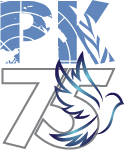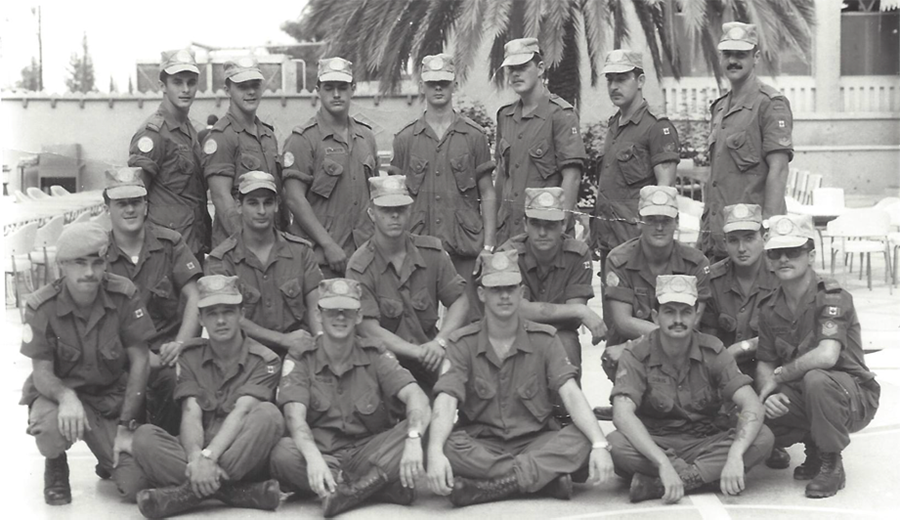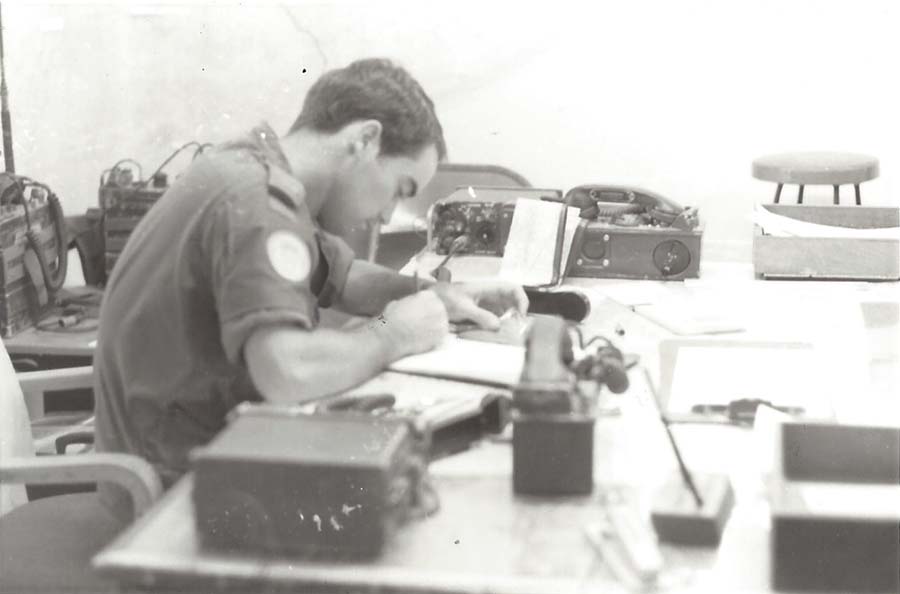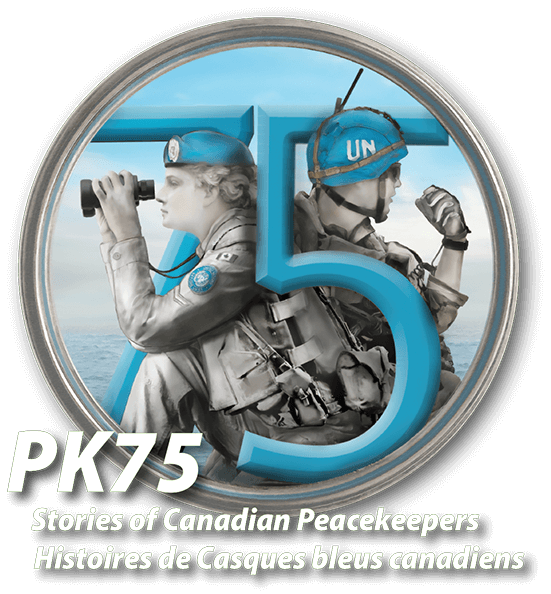

Montréal, QC, Canada
Marc Caron
Current Location: Orléans, ON, Canada
My experience in peacekeeping operations is varied from the beginning of my career with the mission to Cyprus in 1974, a pivotal year, with the coup d’état followed by the invasion by Turkish forces that divided the island and gave it its present disposition. I also took part in an Organisation for Security and Cooperation in Europe (OSCE) mission to Kosovo in 1998–99. This was a special mission for this organisation, which preceded the NATO intervention in Kosovo. I could even have used my experience as a UN official following my retirement from the Canadian Army, where I served in Africa, particularly in the Democratic Republic of Congo in 2009 and Guinea Conakry, 2012–13. Experiences full of lessons. But I have chosen to present my experiences in Cyprus in 1974. My aim is to present the Canadian contribution which, in my opinion, greatly countered the strategic objectives of the Turkish forces and in the process probably saved many thousands of lives.
Background, Coup d’état
The pressure exploded in July 1974, when Greek Cypriots led a coup to finally unite Cyprus with Greece. Turkey was against it and quickly intervened with force.
The Turkish invasion
On 20 July 1974, 40,000 Turkish troops began to invade Cyprus. Turkey said it only wanted to restore the situation and protect the Turkish minority population. Canadians and other UN soldiers suddenly found themselves in the middle of a war zone.
The UN forces, including the Canadian contingent based on elements of the Canadian Airborne Regiment, were surrounded by many perilous situations. In a battle near Nicosia airport, the Canadians negotiated a local cease-fire. Greek and Turkish forces agreed to withdraw from the area. Our peacekeepers then occupied the airport, but the Turkish threat was still present. The Canadian military had only a few anti-tank weapons and heavy machine guns. They cleverly moved from place to place around the airport under the cover of night to make it look like there were more of them defending the place. The strategy paid off! Our peacekeepers held a strategic location.
Open combat raged in Cyprus for several weeks in the summer of 1974. During this fighting, three Canadian peacekeepers were killed and 17 others were wounded. The Canadians also proved their great courage. On July 23, 1974, members of our troops came under fire during a patrol. Several soldiers were hit, including the officer, Captain Blaquière, who was leading the patrol. Private Joseph Plouffe rushed to give first aid to Captain Blaquière but was hit in turn. Machine-gun fire threatened the lives of these two wounded Canadians. However, Captain Forand organised the evacuation of the wounded and Corporal Joseph Whelan, Private Joseph Belley and Private Joseph Pelletier braved the bullets to save them. Several medals for bravery were earned in this action.
As the fighting continued in Cyprus, a diplomatic solution was sought. A series of ceasefires were negotiated, and formal peace talks began. Finally, a plan to divide the island into two territories was implemented. A 180 km long buffer zone from the east coast to the west coast, crossing Nicosia, was created. This zone was called the Green Line. It was a demilitarised zone with Turkish forces in the north and Greek forces in the south. The solution was not perfect, but it put an end to open warfare.
However, this approach was adopted at the expense of the people of the island. Many Greek and Turkish Cypriots became refugees in their own country, as they had to be deported due to the division of the island. The only place where the green line remained in the same place as before the events of 1974 was the Canadian sector in the old town of Nicosia.
There are many lessons to be learned from the events of 1974, but the one that I believe must be highlighted is the courage, determination and resilience shown by these Canadian soldiers. In the absence of a clear mandate from the Security Council, and guided by exemplary leadership at all levels, their courageous actions certainly prevented greater loss of life and succeeded in stabilising the situation. These actions, in particular the defence of Nicosia International Airport and the Green Line within the walls of the old city of Nicosia, had an impact at the strategic level. These actions were not necessarily recognized in 1974 but we all have a duty of memory to remind all Canadians of the brave acts of our soldiers.
Biography
Lieutenant-General Marc Caron (Retired) joined the Canadian Forces in October 1971. During his military service, he held the following command positions. He served with the 3rd Battalion Royal 22e Régiment from 1972 to 1974 as a platoon commander, with 1 Commando du Régiment Aéroporté from 1974 to 1976 as a parachute platoon commander and regimental reconnaissance platoon commander and company deputy, then with 1st Battalion Royal 22e Régiment from 1976 to 1978 as Mechanised Platoon Commander and Mortar Platoon Deputy, then with the Royal Welch Fusiliers, as Exchange Officer from 1978 to 1981, in the positions of Assistant Adjutant and Commander of the first MILAN-equipped anti-tank platoon in I British Corps. He commanded B Company and Service Support Company in the 3rd Battalion from 1982 to 1984. He commanded the 3rd Battalion from 1988 to 1990, Land Force Québec Area (now 2nd Division) from 2000 to 2003, and finally, was Commander of the Army from 2003 to 2006.
He graduated from the following training institutions: the Royal Military College of Science in the United Kingdom in 1981, the Canadian Army Command and Staff College in 1982, the Canadian Forces College in Toronto in 1985 and the U.S. Army War College in Carlisle, Pennsylvania in 1994.
He was engaged in the following operations:
- In Cyprus with the Canadian Airborne Regiment from April to December 1974 during the invasion by Turkish forces;
- Providing support to the 1976 Olympics in Montréal;
- Chief of Army Operations during Operation Salon during the Oka events in 1990; and
- In Kosovo from October 1998 to June 1999 as Chief of Staff of the Kosovo Verification Operation (KVM) of the Organization for Security and Cooperation in Europe (OSCE).
He held several important staff positions, including Chief of Operations, Land Force Command from 1990 to 1993 and Deputy Chief of Staff, Army (2003–2004). During this period, he also served as Acting Commander of the Canadian Army (2003–2005) and then Commander of the Canadian Army (2005–2006).
He retired in February 2007 after 35 years of loyal service to his country.
Since his retirement, he has embarked on a second career as an international civil servant. His first assignment, from April to November 2008, was as Senior Security Sector Reform Advisor to the Special Representative of the Secretary General of the United Nations Organization Mission in the Democratic Republic of Congo (MONUSCO).
From November 2009 to May 2011, he joined the International Security Sector Advisory Team of the Geneva Centre for the Democratic Control of Armed Forces (DCAF). There he assumed the role of adviser on security sector reform projects for several national programmes and international and regional organisations, mainly in Africa. He remained involved with this organisation until 2019.
In 2012–2013, in Conakry, Guinea, he was a strategic policy and strategy advisor to the President of Guinea, Alpha Condé, an appointment he received from the UN Secretary General.
He was involved with the Canadian Armed Forces as a senior mentor with the National Security Program at the Canadian Forces College in Toronto for the 2019–2020 academic years.
In addition to sports activities such as hockey, skiing, running, and camping, his priorities remain his family, especially his eight grandchildren, and the regimental family of the Royal 22e Régiment. He became the 16th Colonel of the Royal 22e Régiment on 13 July 2019, a position he held until 14 July 2022.

My platoon in Cyprus in August 1974, taken at Ledra Palace, our residence. I am the one wearing the beret.

Duty Officer, Cyprus, 1974.


